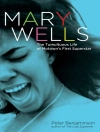<P>Cited by Soundpost as ‘remarkable and revolutionary’ upon its publication in 1977, Music, Society, Education has become a classic in the study of music as a social force. Christopher Small sets out to examine the social implications of Western classical music, effects that until recently have been largely ignored or dismissed by most musicologists. He strives to view the Western musical tradition ‘through the mirror of these other musics [Balinese and African] as it were from the outside, and in so doing to learn something of the inner unspoken nature of Western culture as a whole.'</P><P>As series co-editor Robert Walser writes, ‘By pointing to the complicity of Western culture with Western imperialism, Small challenges us to create a future that is more humane than the past. And by writing a book that enables us to rethink so fundamentally our involvements with music, he teaches us how we might get there.'</P>
Tabella dei contenuti
<P>Foreword to the 1996 Edition<BR>Introduction<BR>The Perfect cadence and the Concert Hall<BR>Music Outside Europe<BR>The Commanding of Nature<BR>The Scientific World View<BR>The Vision of a Potential Society<BR>A Different Drummer<BR>Plus Ca Change<BR>Children as Consumer<BR>Children as Artists<BR>Index</P>
Circa l’autore
<P>CHRISTOPHER SMALL was Senior Lecturer at Ealing College of Higher Education I London until 1986. He is author of Music of the Common Tongue (1987), Schoenberg (1978), and numerous essays and has composed for the screen, stage, and orchestra. He lives in Sitges Spain.</P>












